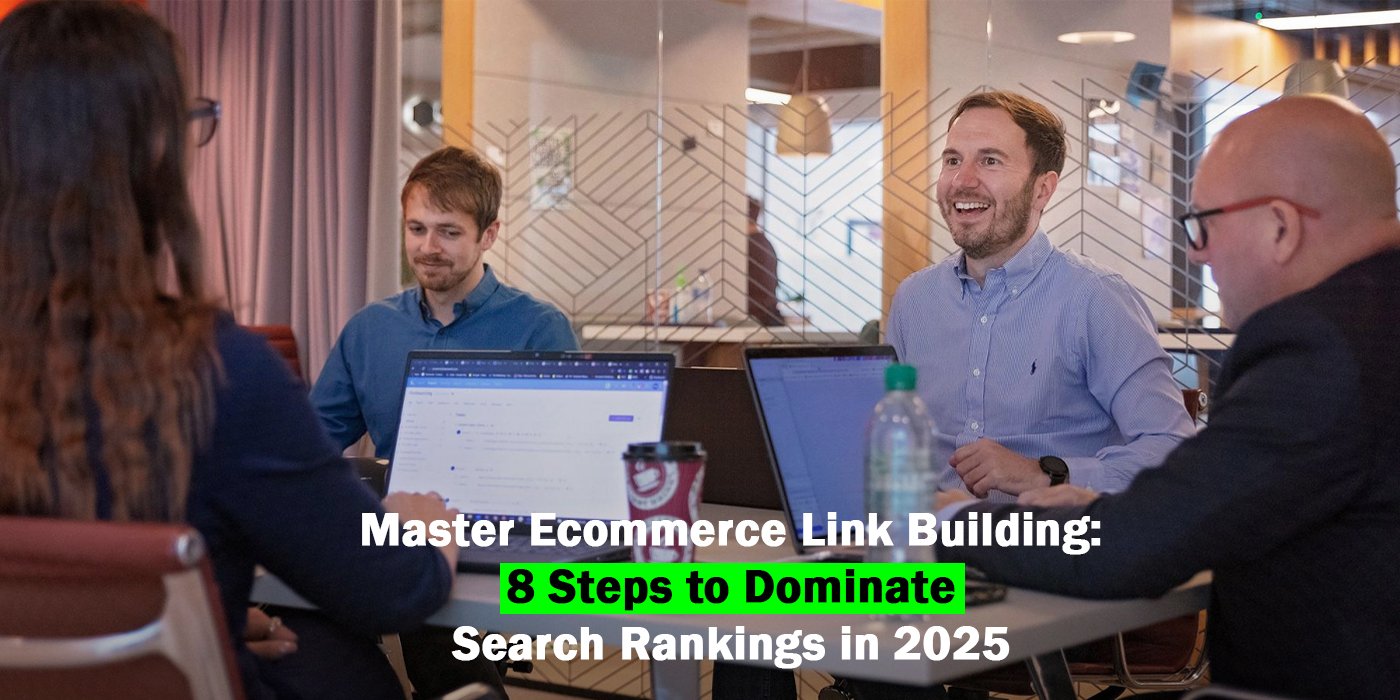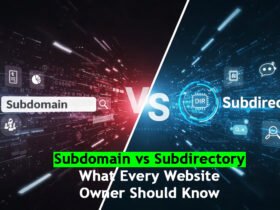|
Getting your Trinity Audio player ready...
|
Ecommerce link building is one of the most powerful tools to help your online store succeed in an increasingly competitive digital landscape. With the constant changes in search engine algorithms and the rising need for quality content, it’s more important than ever to focus on strategic link-building efforts. This guide will walk you through eight essential steps to mastering ecommerce link building and boosting your store’s rankings in 2025.
Quick Details
| Detail | Description |
|---|---|
| What It Is | Acquiring backlinks to improve SEO and rankings for ecommerce stores. |
| Why It Matters | Boosts domain authority, visibility, and organic traffic. |
| How to Find Quality Links | Focus on authoritative, niche-relevant sites. |
| Influencer Role | Influencers help through product mentions, reviews, and backlinks. |
| Link Audit | Analyzing and cleaning existing backlinks to remove low-quality ones. |
| Time for Results | Typically takes a few months to see noticeable SEO improvements. |
| Directory Listings | Submitting to niche-specific, reputable directories for backlinks. |
| Content Marketing | Creating valuable, shareable content to naturally attract backlinks. |
| Types of Backlinks | Editorial, guest posts, influencer links, and directory listings. |
| Link Quality vs. Quantity | Quality backlinks from relevant sources are more valuable than quantity. |
| Monitoring Success | Use tools like Ahrefs and SEMrush to track backlink impact. |
What Is Ecommerce Link Building?
At its core, ecommerce link building refers to the process of acquiring backlinks from other websites that point to your ecommerce store. These backlinks signal to search engines that your website is trustworthy, relevant, and authoritative within your niche. As a result, ecommerce link building is an essential component of SEO, helping improve search engine rankings and increase organic traffic.
While traditional link-building strategies might work for general websites, ecommerce link building is specific to online stores. In ecommerce, the goal is not only to drive traffic but to build a credible online presence that converts visitors into customers.

The Importance of Ecommerce Link Building
Link building is an integral part of any effective SEO strategy for ecommerce stores. High-quality backlinks from reputable websites help establish your store as an authority in your niche. In return, these backlinks improve your site’s domain authority, enabling it to rank higher for targeted keywords.
For ecommerce stores, SEO rankings translate directly to increased visibility and sales. When your website ranks on the first page of Google, it gains more exposure to potential customers who are actively searching for products in your industry. This can lead to more traffic, higher conversions, and ultimately, greater revenue.
Step 1: Understand the Basics of Ecommerce Link Building
Before diving into link-building tactics, it’s crucial to understand the fundamentals. Ecommerce link building revolves around acquiring backlinks that provide value not only to your SEO efforts but also to your users.
These backlinks come in various forms, such as:
- Editorial backlinks: Links within content, articles, or blog posts on external websites.
- Guest posts: Contributions to other blogs or websites where you get a link back to your store.
- Social media links: Links from social media profiles or shared content that can drive traffic and improve visibility.
By focusing on high-quality backlinks that are relevant to your ecommerce business, you’ll set the foundation for a successful SEO strategy.
Step 2: Conduct a Link Audit of Your Ecommerce Site
A link audit is the first practical step in any ecommerce link-building strategy. It involves analyzing your current backlink profile to identify opportunities and potential risks. Start by checking the backlinks you’ve already acquired using tools like Ahrefs, SEMrush, or Moz.
This audit will help you uncover:
- Toxic links: Low-quality links from spammy or irrelevant sites that could hurt your rankings.
- Lost links: Backlinks that were removed or devalued over time.
- New opportunities: Quality sites or domains where you can acquire new backlinks.
Regularly conducting a link audit ensures that you maintain a healthy backlink profile that supports your SEO efforts.
Step 3: Focus on Quality Over Quantity
While the number of backlinks is important, quality matters more when it comes to ecommerce link building. One high-quality backlink from an authoritative, relevant site can be more beneficial than dozens of low-quality links from irrelevant sources.
Quality backlinks are typically earned from websites with:
- Strong domain authority
- Relevant content
- Trustworthiness and industry relevance
Focus on acquiring links from high-authority websites within your niche, such as industry blogs, influencers, or educational resources.
Step 4: Create Link-Worthy Content
To attract backlinks, you need content that’s worth linking to. This can include blog posts, product guides, case studies, or even infographics. Content marketing is one of the best ways to naturally earn backlinks over time.
Types of link-worthy content include:
- In-depth product reviews
- Tutorials or how-to guides
- Industry reports or data-driven studies
- Infographics and visual content
Quality content is more likely to get shared by other websites, bloggers, and social media influencers, resulting in valuable backlinks that support your SEO efforts.
Step 5: Leverage Influencers and Bloggers in Your Niche
Influencer marketing is a powerful tool for ecommerce link building. Collaborating with industry influencers and bloggers allows you to tap into their established audience, gaining exposure and earning valuable backlinks.
When reaching out to influencers or bloggers:
- Offer free products or services in exchange for honest reviews or features.
- Ask influencers to include links to your product pages or category pages in their content.
Be sure to approach influencers whose audience aligns with your target customers to ensure the backlinks are relevant and impactful.
Step 6: Utilize Broken Link Building
Broken link building is a tactic where you find broken links on websites within your industry and suggest your content as a replacement. This approach benefits both you and the website owner: they get a fixed link, and you gain a valuable backlink.
To find broken links, use tools like Check My Links or Ahrefs to scan websites in your niche for dead or broken links. Once you identify a broken link, reach out to the website owner and offer your relevant content as a replacement.
Step 7: Get Listed in Industry-Specific Directories
Submitting your ecommerce store to industry-specific directories can help improve your store’s SEO and visibility. Directories like Yellow Pages, Yelp, and specialized niche directories provide valuable backlinks from authoritative sources.
When selecting directories to submit to:
- Ensure they are relevant to your niche.
- Look for directories with high domain authority.
- Avoid generic directories that don’t add value.
These listings not only provide backlinks but also help increase your online presence and credibility.
Step 8: Monitor and Refine Your Link-Building Efforts
Link building is an ongoing process. Continuously track the success of your link-building strategies by using tools like Google Search Console, Ahrefs, or SEMrush to monitor your backlinks and their impact on your rankings.
Refine your efforts by:
- Removing low-quality backlinks.
- Identifying new link-building opportunities.
- Adjusting your strategies based on performance metrics.
By staying proactive and continuously refining your link-building strategy, you can stay ahead of competitors and maintain strong SEO rankings.
Conclusion
Mastering ecommerce link building is essential for improving your search rankings, driving organic traffic, and building a strong online presence. By following the eight steps outlined in this article, you’ll be able to create a robust link-building strategy that helps your ecommerce site dominate search results in 2025. Remember, quality backlinks are the foundation of any successful SEO campaign, and with persistence and smart strategies, your online store will reap the rewards.
FAQs
What is ecommerce link building?
It’s the process of acquiring backlinks from other websites to improve your ecommerce store’s SEO and search rankings.
Why is link building important?
It boosts your site’s authority, visibility, and organic traffic by signaling trustworthiness to search engines.
How do I find quality backlinks?
Seek links from authoritative sites in your niche, like blogs, influencers, and industry directories.
Can influencers help with link building?
Yes, influencers can provide valuable backlinks through reviews or product mentions.
What is a link audit?
A link audit checks your current backlinks for quality, removing harmful ones to maintain a healthy profile.
How long to see results from link building?
It typically takes several months for backlinks to impact search rankings.
Are directory listings valuable?
Yes, niche-specific directories provide valuable backlinks and increased visibility.
Is content marketing key for link building?
Yes, creating shareable, high-quality content attracts natural backlinks.




